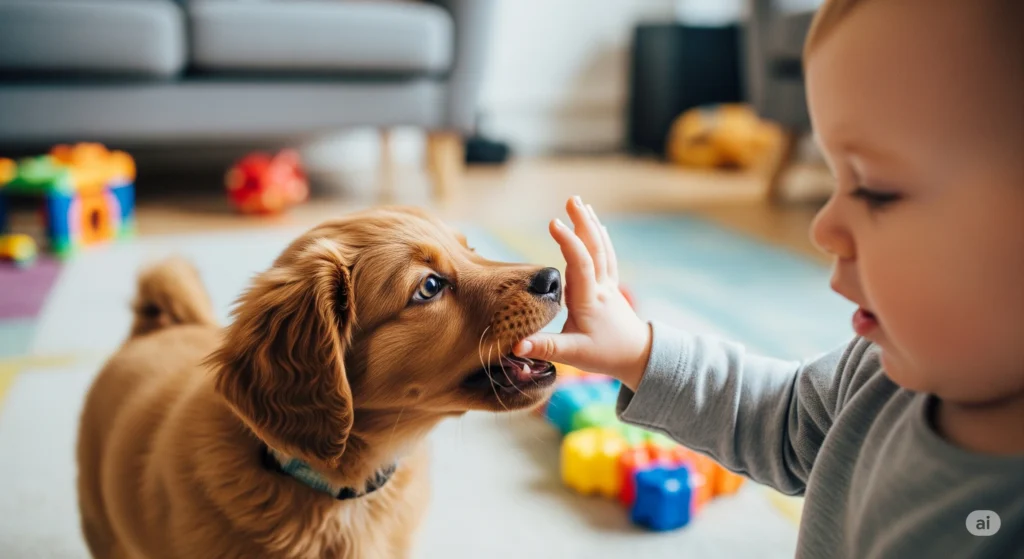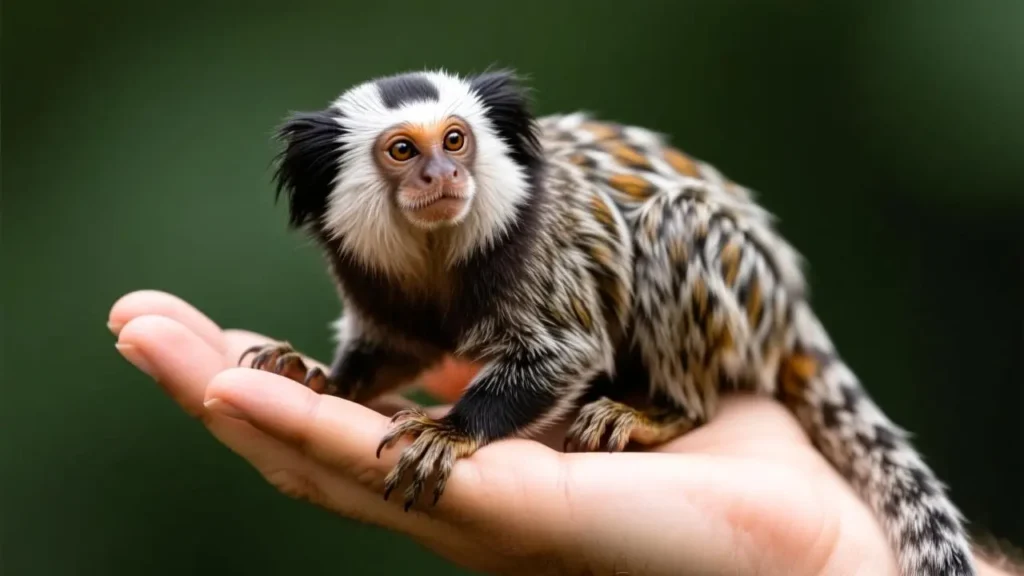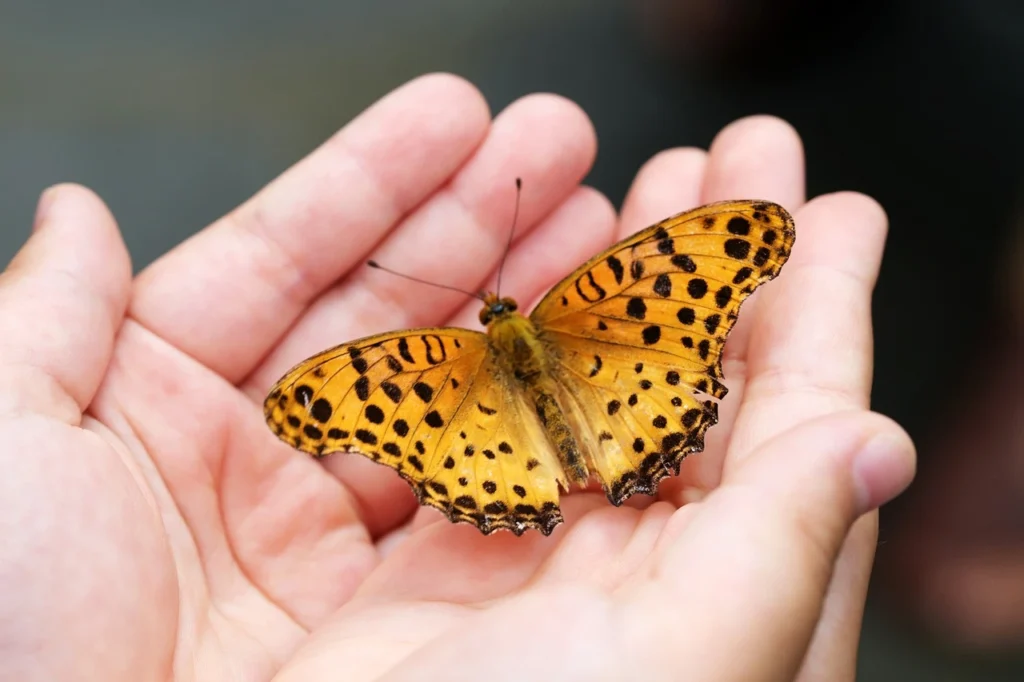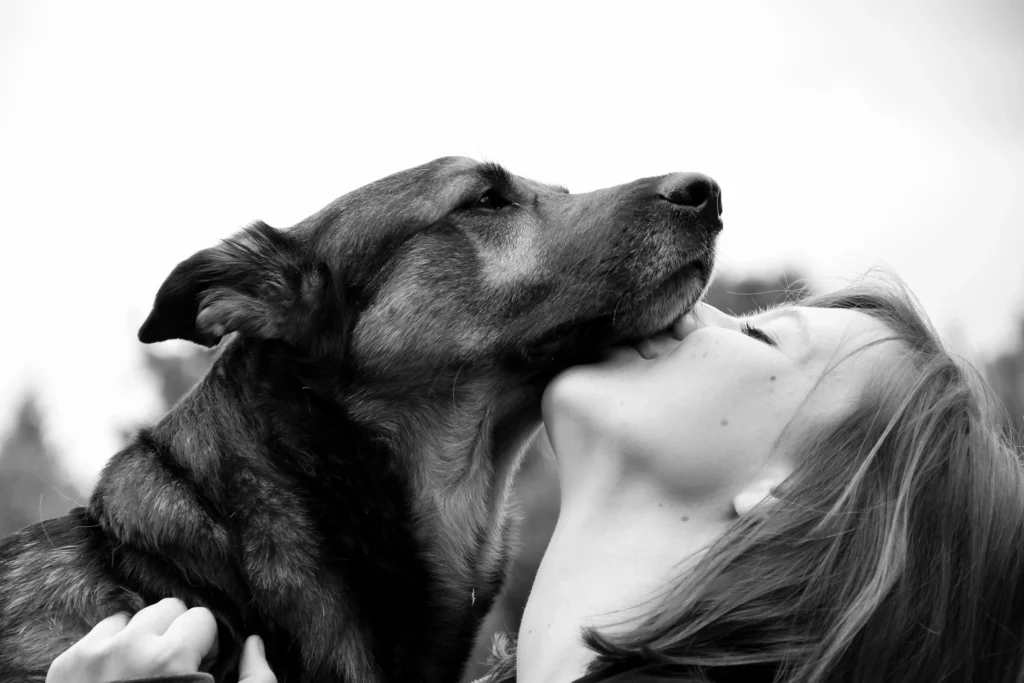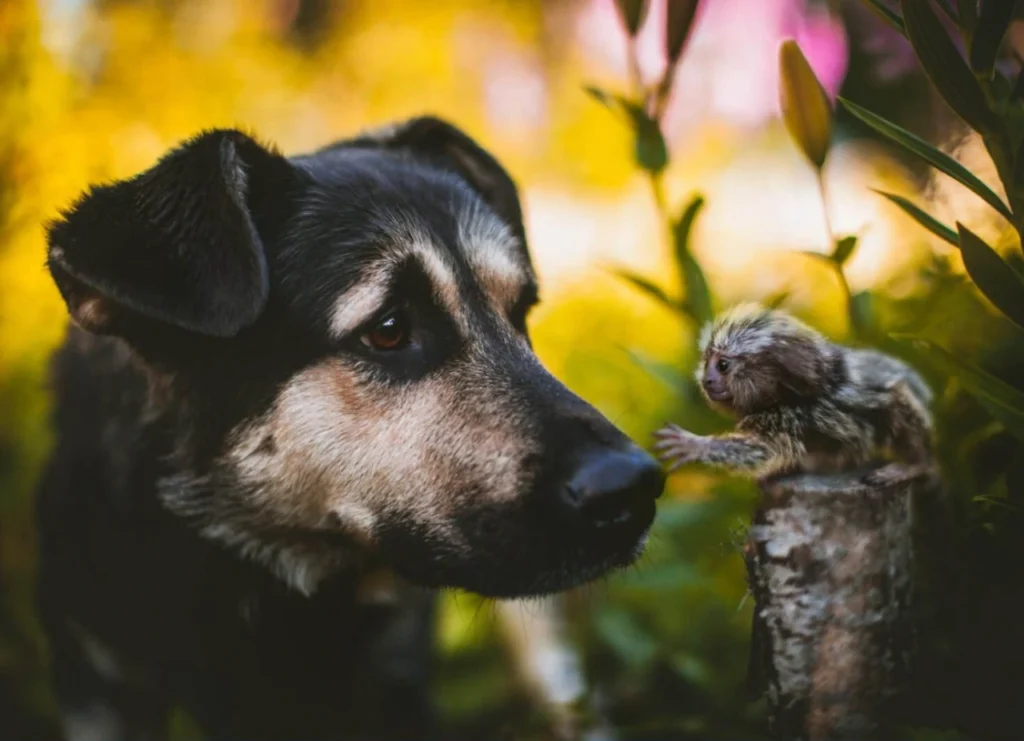It’s a common scenario, one I’ve personally navigated countless times with both my own puppies and those I’ve helped train: the exasperating challenge of incessant nipping. I’ve experienced the sheer disbelief, the sudden pain, and the overwhelming desire to understand how to stop puppy biting frustration. What I’ve learned through my extensive experience is that it’s not about battling an aggressive animal, but rather guiding a developing creature through a crucial stage of learning and growth.
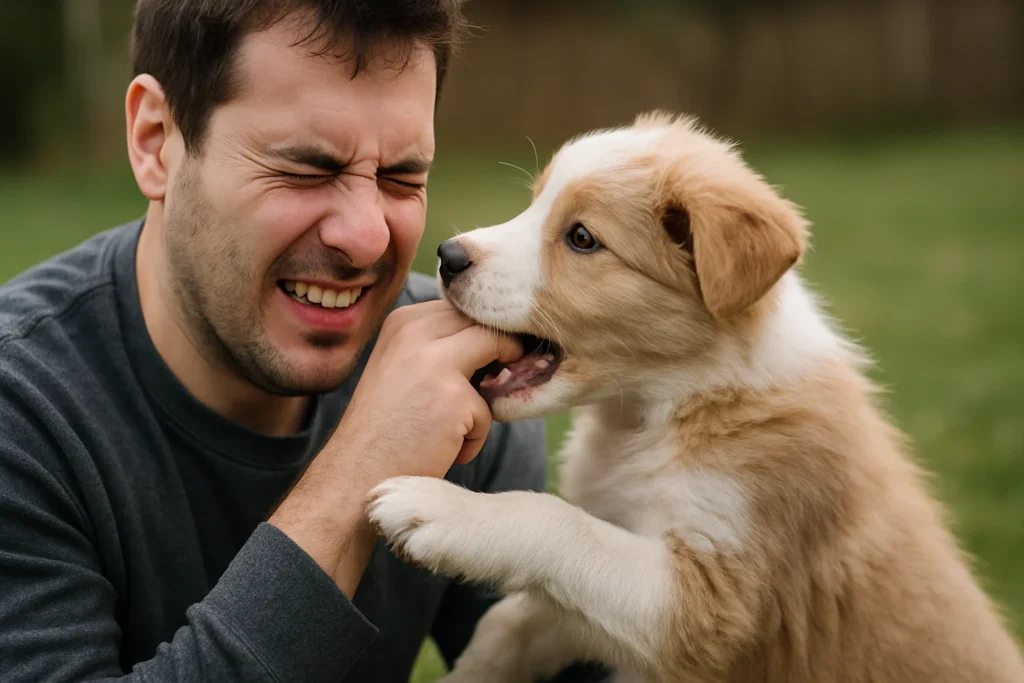
My professional journey in animal behavior has given me a profound insight into this common issue. I believe that understanding the why behind puppy biting is the first step in effectively addressing how to stop puppy biting frustration. Puppies use their mouths to explore the world, much like human toddlers use their hands. They also learn bite inhibition from their littermates – a process we, as their human companions, must now teach them.
My Foundational Approach to Ending Puppy Biting
When I begin working with a puppy and their owners on how to stop puppy biting frustration, my focus is always on consistency and positive reinforcement. I advocate for teaching puppies what to do, rather than simply punishing what they shouldn’t. This proactive approach, in my experience, yields the most reliable and humane results.
How do I get a puppy to stop biting?
My primary strategy for how to get a puppy to stop biting revolves around three core pillars: teaching bite inhibition, providing appropriate outlets for chewing, and managing their environment.
- Teaching Bite Inhibition: This is paramount. Puppies learn from their littermates that a hard bite means play stops. I encourage owners to mimic this process. When my puppy’s teeth make contact with my skin, even lightly, I immediately let out a sharp, high-pitched “ouch!” or “yip!” – a sound that communicates pain to them.
- Instant Disengagement: The crucial next step I follow is to immediately withdraw the limb or part of my body they bit, turn away, and completely disengage for 10-20 seconds. This teaches them that biting results in the cessation of all positive interaction and attention. I’ve observed that this consequence is far more effective than any physical reprimand.
- Offering Appropriate Chews: Puppies have an innate need to chew, especially when teething. My approach to how to stop puppy biting frustration includes always having a variety of appealing chew toys readily available. When a puppy attempts to nip, I gently but firmly redirect their attention to an appropriate toy, praising them enthusiastically when they engage with it.
How to stop overstimulated puppy biting?
Overstimulation is a major contributor to puppy biting frustration, and it’s something I pay close attention to. A puppy that’s overly tired, overwhelmed, or has simply had too much excitement can quickly devolve into a “land shark.”
- Recognize the Signs: I’ve learned to recognize the subtle cues: frantic zoomies, increased nipping intensity, difficulty settling.
- Implement a “Calm Down” Protocol: When I see these signs, I immediately initiate a quiet time-out. This might mean gently leading them to their crate with a safe chew toy, or simply disengaging from play entirely and sitting quietly until they calm down.
- Scheduled Downtime: I firmly believe in incorporating mandatory “quiet times” or naps into a puppy’s day. My experience has shown that well-rested puppies are far less prone to overstimulated biting.
How do you discipline a puppy from biting you?
My philosophy on discipline centers on positive reinforcement and clear communication, rather than punishment. When I address how to discipline a puppy from biting you, I focus on guiding behavior, not suppressing it.
- No Physical Punishment: I never advocate for physical punishment, such as tapping their nose, holding their mouth closed, or alpha rolls. In my experience, these methods can erode trust, instil fear, or even escalate biting due to fear-aggression.
- Consistent Consequences: My form of discipline is consistently applying the “ouch and disengage” method. The “discipline” is the immediate and complete removal of attention and interaction, which is a powerful message to a social animal like a dog.
- Rewarding Alternatives: I consider it essential to lavish praise and positive reinforcement when the puppy chooses to chew an appropriate toy or engages in gentle play. This reinforces the desired behavior far more effectively than punishment.
What command stops a puppy from biting? What command stops a puppy from biting? How to teach no to a puppy?
While “no” can be a useful interrupter, I’ve found that specific commands combined with redirection are more effective than a blanket “no” when teaching how to stop puppy biting frustration.
- “Off!” or “Leave It!”: These are my preferred commands to interrupt unwanted biting. When the puppy’s teeth are on me, a firm “Off!” followed by an immediate redirection to a toy (and praise for taking the toy) works wonders. “Leave It!” is excellent for teaching them to ignore something altogether.
- Teaching “No” Contextually: I teach “no” as an interrupter for specific undesirable behaviors, not just biting. For instance, “no, don’t jump” or “no, don’t chew that shoe.” It’s about providing a clear boundary. I follow “no” with a redirect to what they can do. This makes the lesson for how to teach no to a puppy much clearer and more positive.
At what age should puppies stop biting?
This is a question I get frequently, and it speaks directly to the core of how to stop puppy biting frustration. My general observation is that significant progress in reducing biting should be seen between 4 and 6 months of age.
- Developmental Phases:
- Up to 12-16 weeks: This is peak puppy biting phase. Their primary form of interaction is mouthing, and they are also teething. This is when consistent bite inhibition training is most critical.
- 4-6 months: As permanent teeth come in, the intense need to chew often shifts, and with consistent training, the frequency and intensity of biting should drastically decrease. They learn to control their jaw pressure.
- Beyond 6 months: While occasional mouthing might occur, hard biting in puppies beyond 6 months (and certainly into adolescence) indicates that the early bite inhibition training wasn’t fully grasped, or other behavioral issues might be at play. If significant biting persists beyond this age, I always recommend seeking the guidance of a professional dog trainer or veterinary behaviorist.
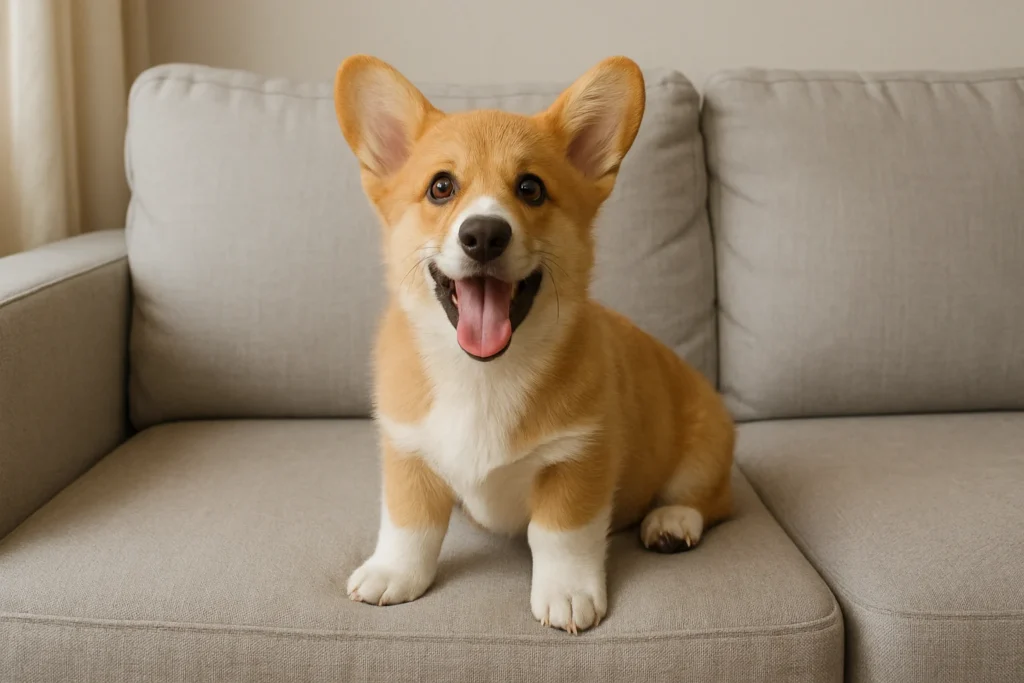
My Journey to Understanding Puppy Biting
When I first faced the constant nipping, I felt a genuine sense of frustration. It wasn’t just painful, it was disheartening. I’d play with my puppy, and inevitably, those little teeth would clamp down. I tried pulling my hand away quickly, yelping, even trying to ignore it – sometimes it felt like nothing worked. That’s when I decided to really dive deep into how to stop puppy biting frustration.
My initial thought was that it was aggression, but I soon learned, through countless books and professional advice, that it’s almost always a normal part of puppy development. They explore with their mouths, they learn bite inhibition from their littermates, and they teethe. My goal, then, shifted from just stopping the bite to teaching them how to use their mouths appropriately. This key distinction was, for me, the first piece of the puzzle in how to stop puppy biting frustration.
Puppy Training (and Stopping the Biting!)
From my experience, understanding how to stop puppy biting frustration isn’t just about training; it’s about understanding why puppies bite and approaching the problem with a clear, consistent strategy. I think many new puppy owners, myself included at one point, just react to the bite. But the real solution, I’ve learned, lies deeper.
Here’s what I’ve found to be the most effective strategies for how to stop puppy biting frustration:
1. Teaching Bite Inhibition: The “Ouch!” Method
This is, in my opinion, the cornerstone of how to stop puppy biting frustration. Puppies learn from their littermates how hard is too hard. When one puppy bites another too hard, the bitten puppy yelps, and play stops. We need to mimic that.
- My method: When my puppy’s teeth made contact with my skin, even gently, I would immediately let out a high-pitched “Ouch!” or a sharp “Yelp!” – something that mimics a puppy’s protest.
- The crucial next step: Right after the sound, I would immediately withdraw my hand, turn my back, and stop all interaction for 10-20 seconds. This is the “time-out” part. My experience showed that if play continued, the lesson was lost.
- Why it works: My puppy quickly learned that sharp bites meant the fun stopped. This is a vital piece of how to stop puppy biting frustration, as it teaches them to control the pressure of their jaws.
2. Redirecting the Nipping: The Power of Appropriate Chews
Puppies need to bite and chew; it’s a natural instinct, especially during teething. Trying to stop all biting is like trying to stop the tide – impossible and frustrating for everyone involved. My strategy for how to stop puppy biting frustration included providing appropriate outlets.
- What I did: I always had a variety of chew toys on hand. When my puppy started to mouth or nip at me, I would firmly say “No!” (or “Off!”), then immediately offer a suitable chew toy.
- Making it appealing: Sometimes, I’d wiggle the toy to make it more interesting than my hand. I’ve found that rewarding them when they chose the toy over my skin was incredibly effective.
- Consistency is key: I think this is where many people falter. Every time those teeth came near me, I redirected. This consistency is fundamental to how to stop puppy biting frustration.
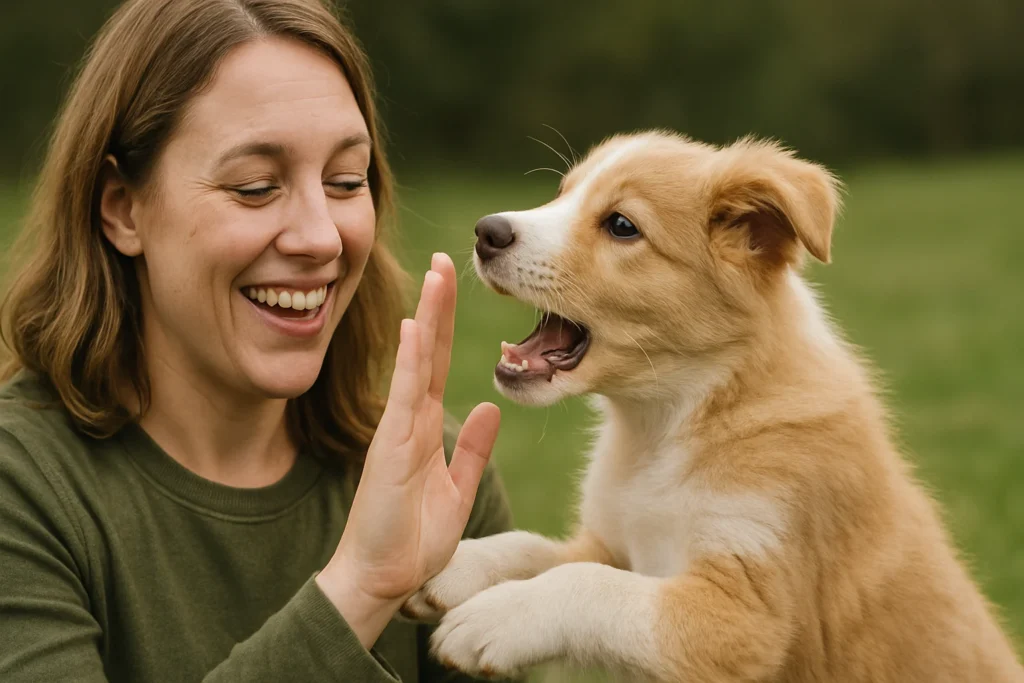
3. Managing Excitement and Over-Stimulation
I quickly learned that my puppy’s biting often escalated when they were overtired, over-stimulated, or just incredibly excited. Part of how to stop puppy biting frustration is managing these energy levels.
- My observation: Late in the evening, when my puppy was tired but wired, the biting seemed to intensify. I call these the “zoomies with teeth.”
- What I implemented: Instead of trying to play through it, I would initiate a quiet time-out in their crate or a designated calm space. Sometimes, a short nap was all that was needed to reset.
- Controlled play: I also learned to keep play sessions shorter and sweeter, ending them before my puppy reached that frantic, bitey state. This proactive approach was invaluable for me in reducing general puppy biting frustration.
4. Avoiding Punishment and Harsh Methods
From my point of view, using punishment, like tapping their nose or holding their mouth shut, is counterproductive when trying to figure out how to stop puppy biting frustration. It can actually make the puppy fearful, or worse, teach them to bite harder or to hide their biting.
- My philosophy: I believe in positive reinforcement. I rewarded good behavior (chewing toys, gentle mouthing) rather than punishing “bad” behavior.
- Building trust: My experience showed that consistent positive reinforcement builds a stronger bond and a more confident, well-behaved puppy in the long run. When I focused on teaching what to do instead of what not to do, I saw faster progress in tackling the puppy biting frustration.
5. Consistency Across the Household
This might be the most challenging, but also one of the most critical elements in how to stop puppy biting frustration. Every person interacting with the puppy needs to be on the same page.
- My family’s rule: My entire family, from myself to my children, had to use the same “Ouch!” and time-out method, and consistently redirect to toys.
- Why it matters: If one person allows biting, or uses a different method, the puppy gets mixed signals, and the learning process slows down dramatically. I truly believe that consistency accelerates the understanding of how to stop puppy biting frustration.
My Final Thoughts on Ending Puppy Biting Frustration
Learning how to stop puppy biting frustration is a journey that requires patience, consistency, and a deep understanding of your puppy’s natural behaviors. It’s not an overnight fix, but I can tell you from my own experience that it is incredibly rewarding. My hands are now free of nips, and I have a wonderful, well-behaved companion.
